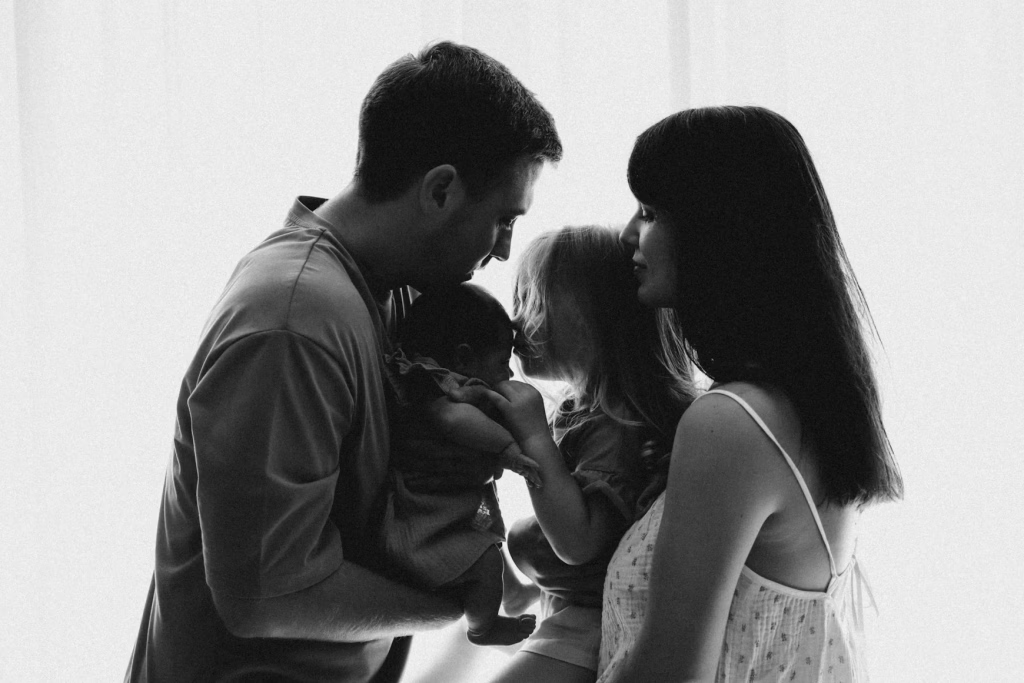
For years, dads have been painted as the “fun parent” or the one who steps in when Mom’s not around—but many fathers are done playing second fiddle. Today’s dads are showing up, speaking out, and redefining what it means to be an equal partner in parenting. They’re packing lunches, scheduling dentist appointments, and handling bedtime just like moms do—only they’re still often treated like a stand-in. Whether it’s school forms addressed to “Mom,” or strangers praising them for “babysitting” their own kids, dads are pushing back against outdated stereotypes. And they’re not asking for applause—they’re asking to be seen as real, capable parents.
1. Dads Are Doing More Than Ever—And They Want Recognition
Modern fatherhood looks very different than it did a generation ago. Many dads now share parenting responsibilities equally, juggling work schedules with drop-offs, sick days, and extracurriculars. But society often fails to recognize their involvement, defaulting to assumptions that moms are still the primary parent. This lack of recognition can be frustrating and even hurtful, especially for dads who are deeply involved in the daily grind of parenting. They don’t want a pat on the back—they want to be included in the conversation.
2. The “Babysitter” Label Is Not Cute—It’s Demeaning
When a dad takes his kid to the park or handles bedtime solo, he’s often met with admiration that feels more like condescension. Comments like “Giving Mom a break?” or “Wow, you’re such a great dad for babysitting!” miss the mark completely. Parenting isn’t a favor—it’s a shared responsibility, and dads want their role treated with the same weight as moms’. These comments may be well-intentioned, but they reinforce a damaging narrative that dads are helpers, not equals. More dads are calling this out, and they’re right to do so.
3. Media and Marketing Still Push Outdated Narratives
While real-life dads are breaking the mold, media and marketing often lag behind. Commercials still frequently portray clueless dads struggling with diapers or botching grocery trips, reinforcing the idea that men are out of their element at home. This narrative not only disrespects dads—it affects how kids see them too. When children grow up seeing dads as sidekicks or jokes, it limits their understanding of what a balanced family looks like. Dads are pushing for better representation—and it’s long overdue.
4. Schools and Doctors’ Offices Often Default to Mom
Despite increased involvement, many dads find themselves overlooked in logistical parenting matters. School emails, medical records, and daycare alerts often go straight to Mom, leaving Dad out of the loop. It’s not just inconvenient—it sends a message that his role isn’t as important. Dads are now speaking up, asking to be cc’d, listed as the primary contact, and treated as equal stakeholders. They’re not asking for extra attention—just equal inclusion in matters that affect their kids.
5. Workplaces Need to Step Up, Too
Paternity leave, flexible hours, and understanding supervisors make a huge difference in allowing dads to show up at home. But many men still feel pressure to choose between career and caregiving, a struggle historically associated with women. Until workplace culture shifts, many dads are stuck in a system that expects them to be breadwinners first and parents second. Some are advocating for policy changes, while others lead by example—taking leave, adjusting schedules, and openly discussing their parenting role. When dads are supported professionally, everyone in the family benefits.
6. Dads Are Creating Their Own Communities
Tired of being sidelined, many fathers are carving out their own spaces—online and offline—where they can share parenting wins, vent frustrations, and build camaraderie. From social media groups to local meetups, these dad communities challenge the notion that emotional connection and child-rearing are “mom territory.” They provide a platform for support, learning, and even advocacy. These spaces also show other dads (and moms) that fatherhood today is active, emotional, and involved. By building these networks, dads are showing they’re not just along for the ride—they’re driving it, too.
7. Changing the Narrative Starts at Home
Real change begins with how families talk about and share parenting roles. Kids learn from what they see—so when both parents are actively involved, they grow up expecting that equality. Moms can also play a key role by recognizing and reinforcing the dad’s contributions, rather than unintentionally gatekeeping routines or decisions. It’s not about competition—it’s about partnership. When families operate as a team, the message is clear: Dad isn’t the backup—he’s a parent, just like Mom.
Equal Isn’t Optional—It’s Essential
The “backup parent” label doesn’t reflect the reality of modern fatherhood. Dads are in the thick of parenting, showing up every day with care, competence, and love. But they’re still often treated like part-timers in their children’s lives—and that needs to change. From schools to workplaces to everyday interactions, recognizing dads as equal partners isn’t just fair—it benefits the whole family. Because when both parents are empowered, kids thrive.
Have you experienced this in your own household? Share your thoughts—how can we shift the narrative around modern fatherhood?
Read More
What Parenting Influencers Don’t Tell You About the Cost of That Trend
How Much You’re Really Spending on Kids’ Clothes Each Year
Catherine is a tech-savvy writer who has focused on the personal finance space for more than eight years. She has a Bachelor’s in Information Technology and enjoys showcasing how tech can simplify everyday personal finance tasks like budgeting, spending tracking, and planning for the future. Additionally, she’s explored the ins and outs of the world of side hustles and loves to share what she’s learned along the way. When she’s not working, you can find her relaxing at home in the Pacific Northwest with her two cats or enjoying a cup of coffee at her neighborhood cafe.


